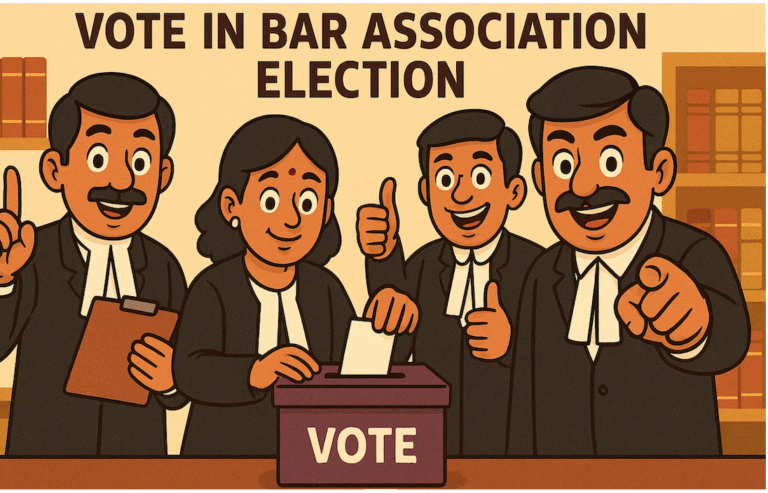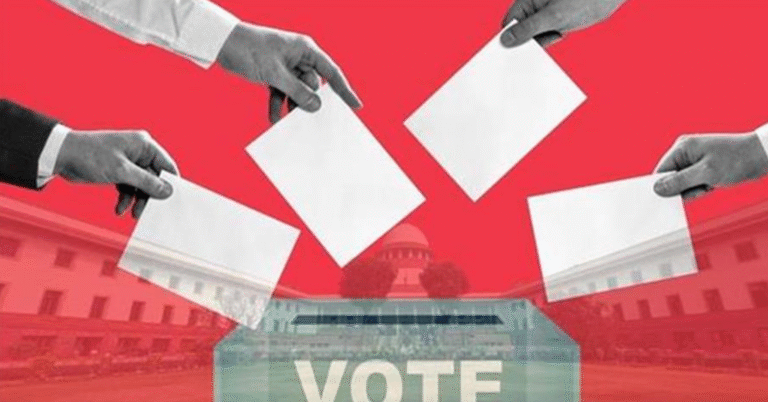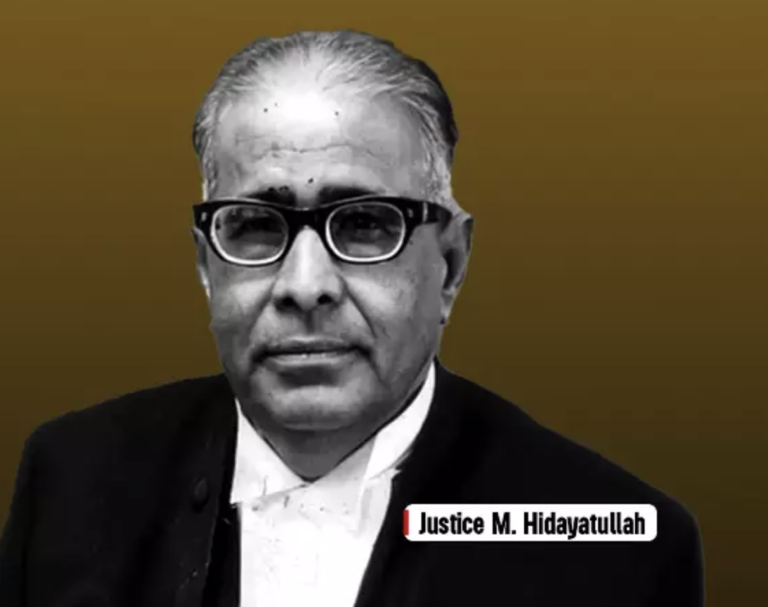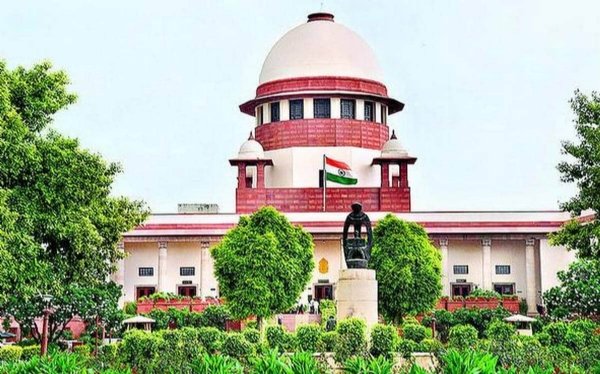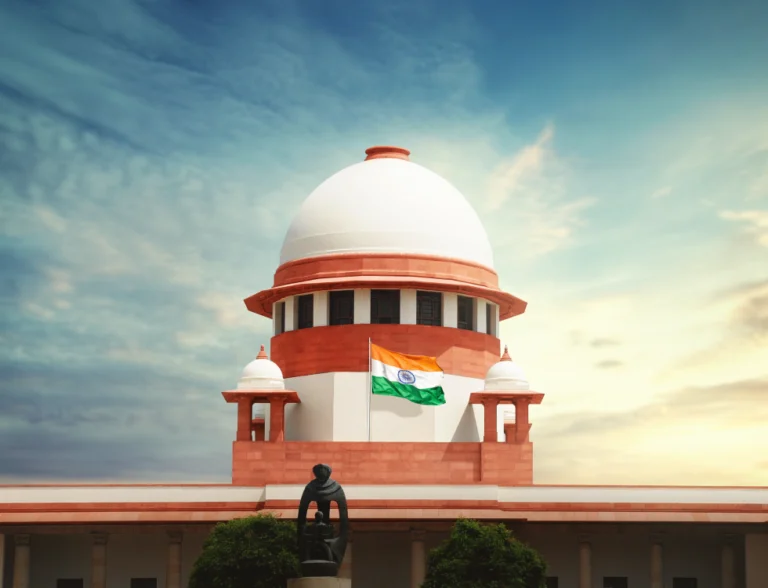High Court’s Contempt Proceedings Stand Overruled in Light of Supreme Court Judgments Recall. The Order, Discharge Me, and Award Compensation for Violation of Fundamental Rights.
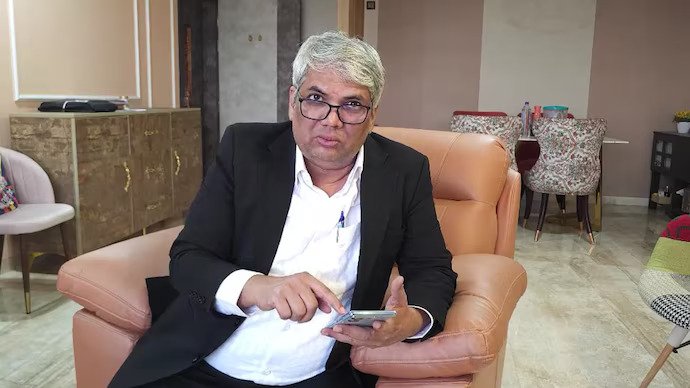
Key Reliefs Sought in the Application:
Immediate recall of the Bombay High Court’s ex parte order dated 8 April 2025.
Discharge from Suo Motu Criminal Contempt Petition No. 1 of 2025, and Award of compensation for the violation of fundamental rights under Articles 19(1)(a) and 21 of the Constitution.
Action under perjury and contempt against the unnamed informant who allegedly supplied false and misleading information to trigger the contempt action.
Initiation of contempt proceedings against the said Senior Advocates, Milind Sathe, Aspi Chinoy, and Darius Khambata of having deliberately withheld relevant Supreme Court judgments from the High Court, thereby enabling a procedurally defective and constitutionally impermissible contempt action to proceed.
AND
Revocation of the Senior Advocate designation of the named lawyers for willful suppression of judicial precedents and dereliction of their ethical duty to assist the Court truthfully.
Call for Transfer of Justice Revati Mohite-Dere out of Maharashtra State- Under Constitution Bench Precedent in S.P. Gupta v. Union of India [1981 Supp (1) SCC 87].
Contempt Proceedings Vitiated Due to Absence of Specific Charges and Anonymous Informant: Adv. Nilesh Ojha
Mumbai, 2 June 2025 — In a powerfully worded discharge application filed before the Bombay High Court, senior legal activist Advocate Nilesh Ojha has sought an immediate end to the contempt proceedings initiated against him. He contends that the contempt action, as well as the related gag orders and directives to delete public interest videos, have been rendered invalid and overruled by multiple binding judgments of the Hon’ble Supreme Court of India. They are also are legally untenable, constitutionally flawed, and procedurally vitiated.
– Key Reliefs Sought in the Application:
Immediate recall of the Bombay High Court’s ex parte order dated 8 April 2025,
Discharge from Suo Motu Criminal Contempt Petition No. 1 of 2025,
and Award of compensation for the violation of fundamental rights under Articles 19(1)(a) and 21 of the Constitution.
Action under perjury and contempt against the unnamed informant who allegedly supplied false and misleading information to trigger the contempt action,
Initiation of contempt proceedings against the said Senior Advocates, Milind Sathe, Aspi Chinoy, and Darius Khambata of having deliberately withheld relevant Supreme Court judgments from the High Court, thereby enabling a procedurally defective and constitutionally impermissible contempt action to proceed. And,
Revocation of the Senior Advocate designation of the named lawyers for willful suppression of judicial precedents and dereliction of their ethical duty to assist the Court truthfully.
The order and Show Cause Notice does not contain Charge of contempt and therefore entire proceeding stand vitiated as ruled by the Supreme Court in the case of Sahdeo Alias Sahdeo Singh Versus State of Uttar Pradesh and Others (2010) 3 SCC 705,
❖ Unlawful Inclusion of Third Parties as Respondents
According to settled constitutional jurisprudence, contempt proceedings are strictly between the court and the alleged contemnor, and no third party can be impleaded as a respondent without the express consent of the alleged contemnor. Despite this, the Bombay High Court’s order dated 8 April 2025 includes multiple third parties—such as the Bar Council and ABP Majha—as respondents. Such inclusion renders the entire contempt proceeding unlawful and therefore liable to be quashed
Relying on precedents like C.S. Karnan, In re [(2017) 2 SCC 756] and Suo Motu v. Yatin Narendra Oza [2020 SCC OnLine Guj 1525], Ojha argues that proceedings are therefore liable to be quashed.
❖ Chief Justice Disqualified from Hearing the Matter Due to Prior Administrative Role
Ojha asserts that Chief Justice Alok Aradhye, who had earlier issued administrative orders initiating contempt proceedings, is disqualified from participating in the judicial bench adjudicating the same matter. Citing judgments like Devinder Pal Singh Bhullar (2011) and Gullapalli Nageshwara Rao v. State of Andhra Pradesh [(1959) SCR 319], the application states that a person cannot be a judge in their own cause.
The participation of the Chief Justice, therefore, violates the principles of natural justice and Supreme Court orders, rendering the 8 April 2025 order and all subsequent proceedings null and void.
❖ Fundamental Rights Violated: Government Liable to Compensate
Ojha’s petition invokes Supreme Court rulings including Ramesh Lawrence Maharaj v. Attorney General of Trinidad & Tobago (1978) and S.Nambi Narayanan v. Siby Mathews (2018) to argue that any citizen whose fundamental rights are violated due to an illegal order of a High Court or Supreme Court is entitled to compensation from the State.
He also contends that government advocates failed in their duty to present the correct legal position before the Court, resulting in the continuation of unlawful proceedings. The State, therefore, bears responsibility for damages under the law.
❖ Hearing Should Have Been Transferred Due to Bias and Conflict of Interest
Ojha raises a serious procedural objection by pointing out that the allegations in the present contempt case involve Justice Revati Mohite-Dere, who is presently serving in the Mumbai bench. According to Supreme Court-established doctrine, such matters should be transferred to a neutral bench—such as Nagpur or Aurangabad—to ensure an impartial hearing.
The continuation of hearings in Mumbai, despite this conflict, violates the right to a fair trial and vitiates the entire contempt proceeding.
❖ Chief Justice and Justice Mohite-Dere Are Witnesses, Not Judges
Ojha’s application cites legal precedents to assert that both Chief Justice Aradhye and Justice Revati Mohite-Dere are material witnesses in the case and therefore legally barred from acting as judges in the same matter.
He notes that in prior cases, Supreme Court and High Court judges have been summoned as witnesses, cross-examined, and even made to file affidavits. The law is clear:
“A witness cannot simultaneously act as a judge in the same proceeding.”
The Chief Justice’s continued involvement directly violates binding precedents, rendering the proceedings unconstitutional and illegal.
❖ Call for Transfer of Justice Revati Mohite-Dere out of Maharashtra State- Under Constitution Bench Precedent
In a significant plea contained within his discharge application, Advocate Nilesh Ojha has called for the transfer of Justice Revati Mohite-Dere outside the jurisdiction of Maharashtra, citing binding legal precedent from the Constitution Bench judgment in S.P. Gupta v. Union of India [1981 Supp (1) SCC 87].
Ojha argues that, as per the settled law laid down in the S.P. Gupta case, the Chief Justice is duty-bound to recommend the transfer of a judge if circumstances exist which reasonably give rise to apprehensions of bias or partiality in the minds of the litigants or the public at large.
The key grounds cited for the requested transfer include:
· Serious allegations of judicial bias and misconduct,
· Close family political affiliations, as the application notes that Justice Mohite-Dere’s sister is a prominent leader in the opposition NCP party led by Sharad Pawar, and
· Past judicial decisions that allegedly demonstrate a pattern of prejudice, particularly against individuals holding views opposed to the said political dispensation.
Ojha asserts that these factors, taken cumulatively, raise a credible and reasonable apprehension of conflict of interest, warranting urgent action in accordance with constitutional norms of judicial impartiality and integrity.
Contempt Proceedings Vitiated Due to Absence of Specific Charges and Anonymous Informant: Adv. Nilesh Ojha
In his detailed discharge application filed before the Bombay High Court, Adv. Nilesh Ojha has argued that the entire contempt proceeding stands vitiated on two independent but legally fundamental grounds:
1. Absence of Framing of Specific Charges
Ojha submits that both the show cause notice and the impugned order fail to disclose any specific charge or precise allegation of contempt, which is a mandatory legal requirement under contempt jurisprudence.
He relies on the binding precedent of the Hon’ble Supreme Court in the case of:
Sahdeo @ Sahdeo Singh v. State of Uttar Pradesh & Others, (2010) 3 SCC 705,
wherein the Court categorically held that a contempt proceeding cannot proceed in the absence of clearly framed charges, and failure to do so vitiates the entire process as being contrary to the principles of natural justice and fair procedure.
2. Non-Disclosure of the Identity of the Informant
The discharge plea further highlights that the order initiating contempt proceedings does not disclose the identity of the informant who supplied the information leading to the suo motu action.
Ojha contends that such anonymity deprives the respondent of the opportunity to challenge the credibility, motives, or factual basis of the informant, thereby violating the fundamental right to a fair hearing under Article 21 of the Constitution.
He argues that it is against the law of pleadings and against the binding precedents of supreme Court and vitiates the legality of the entire contempt proceeding, especially when it is initiated suo motu and based on allegedly misleading or partisan inputs.

